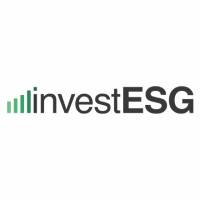INSIGHT by ShareAction

Voting data disclosure and new policies are not being matched by real-world action.
While important foundations for change, the report states that voting data disclosure and new policies are not being matched by real-world action. This could include commitments from asset managers to divest, reduce holdings or refuse to purchase new debt from problematic companies. Only roughly half of the asset managers surveyed had taken these steps, according to the report.Only 13 per cent of managers reported disclosing the impacts of all their portfolios on people and planet, according to the report
Often, asset managers shy away from measures which might attract the most attention. Disclosing portfolio impacts, such as carbon footprints, to clients would increase transparency and allow pension holders and investors to be better informed about their money’s impact. However, only 13 per cent of managers reported disclosing the impacts of all their portfolios on people and planet, according to the report.Other key findings include:Regional divide: European asset managers performed highest in general, with the top ten performers in the stewardship and governance rankings based in the EU or the UK. There were, however, prominent European laggards, including some in the bottom ten.
Biodiversity: Consistent with the findings in part one of the Point of No Returns series is a failure to address biodiversity decline, with the majority of asset managers lacking voting and engagement policies on this theme. Just over a third of asset managers included biodiversity in their voting policies, and just under half included it in their engagement policies.
Diversity: Even the highest-ranking asset managers have a long way to go to ensure gender equality on their boards. Saying this, two-thirds reported several policies or practices to improve internal diversity and inclusion.
Voting: Although the vast majority of asset managers now disclose votes publicly, only three of them pre-declare their voting intentions, which is essential to spur on dialogue and progress on environmental or social themes.
Remuneration: 83 per cent of asset managers reported financial incentives relating to responsible investment, up from just 7 per cent in 2020. However, at the most senior level this figure dips to 27 per cent.
The report included a series of recommendations for asset managers, asset owners, investment consultants and policymakers based on its findings. They ask for asset managers to show more robust and effective stewardship and governance, asset owners to scrutinise and hold them to account, and policymakers to empower regulators and develop strong stewardship rules. All opinions expressed are those of the author and/or quoted sources. investESG.eu is an independent and neutral platform dedicated to generating debate around ESG investing topics.
